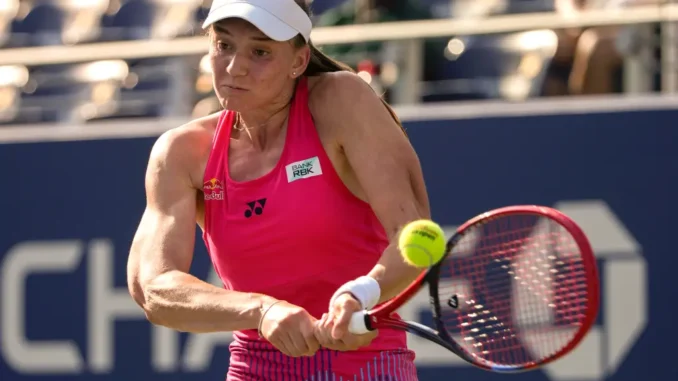
New accusations have emerged regarding the treatment of tennis star Elena Rybakina by her former coach, raising concerns about the dynamics of their coaching relationship. Following her impressive rise in the rankings, including a stunning Wimbledon victory in 2022, Rybakina’s former coach is now facing allegations of inappropriate behavior, specifically related to yelling and aggressive tactics during training sessions.
Reports suggest that the coach’s approach often included shouting at Rybakina during intense workouts, a method intended to motivate her but which may have crossed into territory that left the young athlete feeling demoralized. Eyewitness accounts detail instances where the yelling became not just motivational but also demeaning, causing emotional distress for Rybakina. This aggressive coaching style raises serious questions about the boundaries between motivation and intimidation in high-performance sports.
The allegations come at a time when mental health in athletics is gaining increased attention. Many athletes have started to speak out about the pressures of competition and the sometimes toxic environments created by strict coaching methods. Advocates for athlete welfare argue that coaches must prioritize the emotional well-being of their players, emphasizing supportive relationships over harsh criticism.
In response to the accusations, Rybakina has remained focused on her game, recently switching to a new coaching team. She has shown resilience in her performances, seemingly undeterred by the turmoil surrounding her past relationship with her coach. Her ability to compartmentalize her personal experiences and maintain high performance on the court is commendable, but it highlights the often-overlooked challenges athletes face behind the scenes.
The coach involved has defended his methods, claiming that his intention was to push Rybakina to reach her potential. He expressed regret if his approach was perceived as harmful, insisting that high-stress environments often lead to heightened emotions. However, critics emphasize that effective coaching should be built on trust and respect, and that there are healthier ways to motivate athletes without resorting to aggressive tactics.
As this situation unfolds, it underscores a broader conversation in the sports community about the importance of mental health and the need for more empathetic coaching practices. The goal should be to create environments where athletes can thrive without the added burden of emotional distress caused by their training methods.
The tennis world is watching closely as Rybakina continues her career, hoping that this experience will lead to positive changes in how coaches interact with their players. As conversations around athlete treatment become more prevalent, it is essential for sports organizations to establish guidelines that promote mental well-being alongside athletic success.
Ultimately, while the allegations against her former coach may tarnish his reputation, they shine a light on the crucial need for a more compassionate approach in coaching. As athletes like Rybakina strive for greatness, fostering a supportive environment will be key to unlocking their full potential, both on and off the court.
Leave a Reply